The Ludi Romani, or Roman Games, were among the most esteemed festivals in ancient Rome, celebrated each September in honor of Jupiter, the king of the gods. This festival, one of Rome’s oldest, featured a diverse array of events, including chariot races, theatrical performances, and athletic competitions.
Initiated in 366 BC, the games reflected the evolving social and political landscape of Rome. Initially simple, they grew in complexity and scale, serving as a platform for political leaders to display their power and appease the masses.
Honoring Jupiter was of paramount importance, as he symbolized authority, protection, and agricultural prosperity. His veneration during the games reinforced civic unity and ensured the favor of the gods, which was believed to be crucial for Rome’s well-being and security.
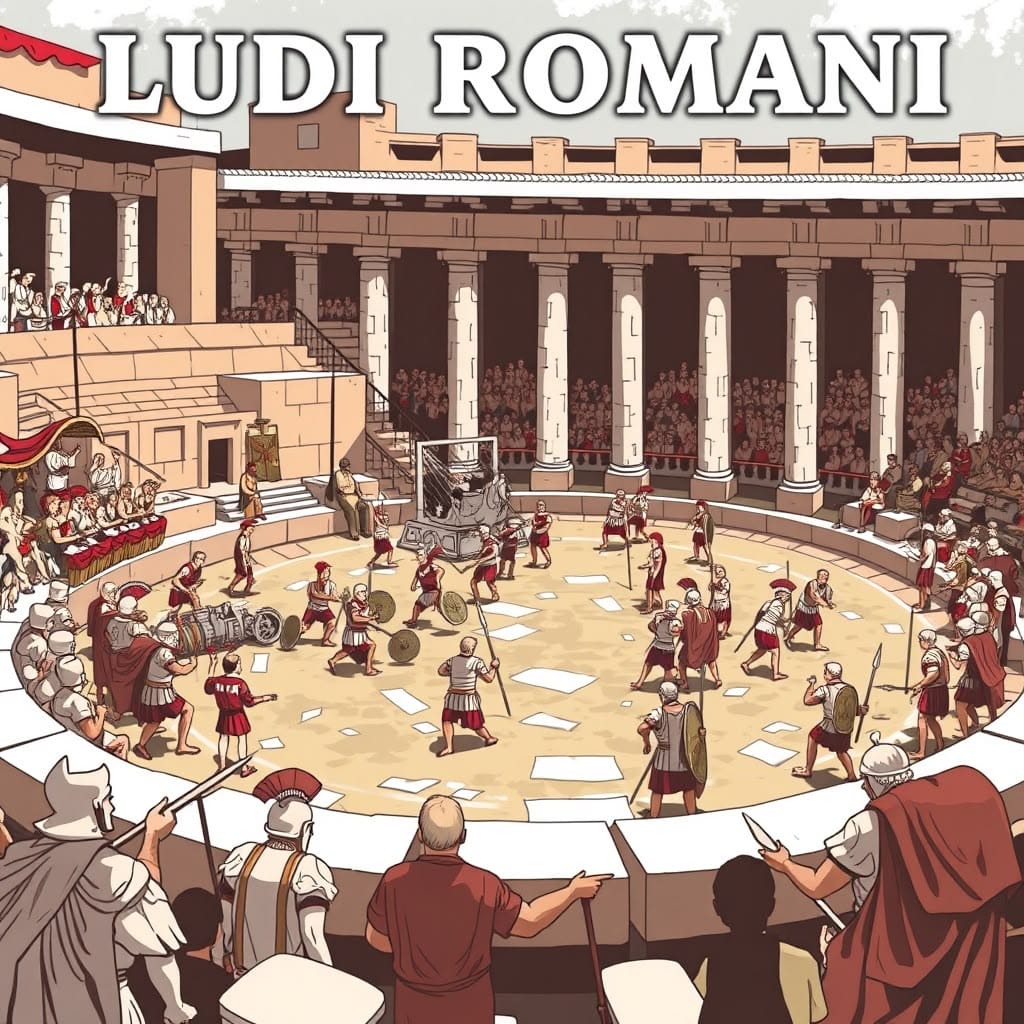
Origins and Evolution
The Ludi Romani festival, known as the Roman Games, traces its origins to the early days of the Roman Republic. Initially, it was established to honor Jupiter, the king of the gods, and was held in September. The primary purpose of the festival was to celebrate military victories and seek divine favor for future endeavors.
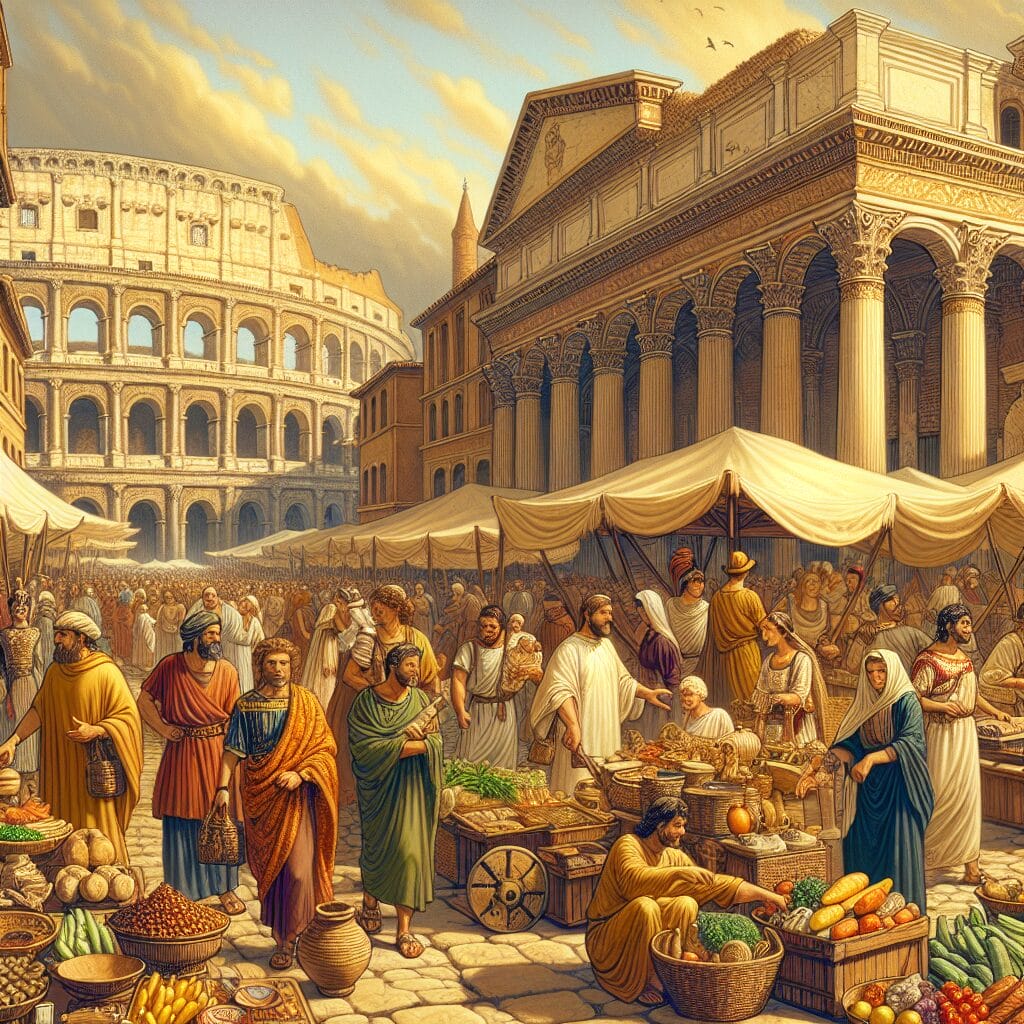
Over time, the Ludi Romani transformed from a solemn religious observance into a grand public spectacle. The festival expanded to include diverse forms of entertainment, such as chariot races, theatrical performances, and athletic competitions. This evolution reflected the broader cultural and social values of Roman society, emphasizing not only religious devotion but also community cohesion and the display of Rome’s power and wealth.
Roman politics played a significant role in shaping the festival. Political leaders leveraged the Ludi Romani to gain popular support, demonstrate power, and distract from political issues. By associating themselves with the grandeur of the festival, leaders reinforced their status and legitimacy within the Roman hierarchy, showcasing their wealth and influence to both citizens and political rivals.
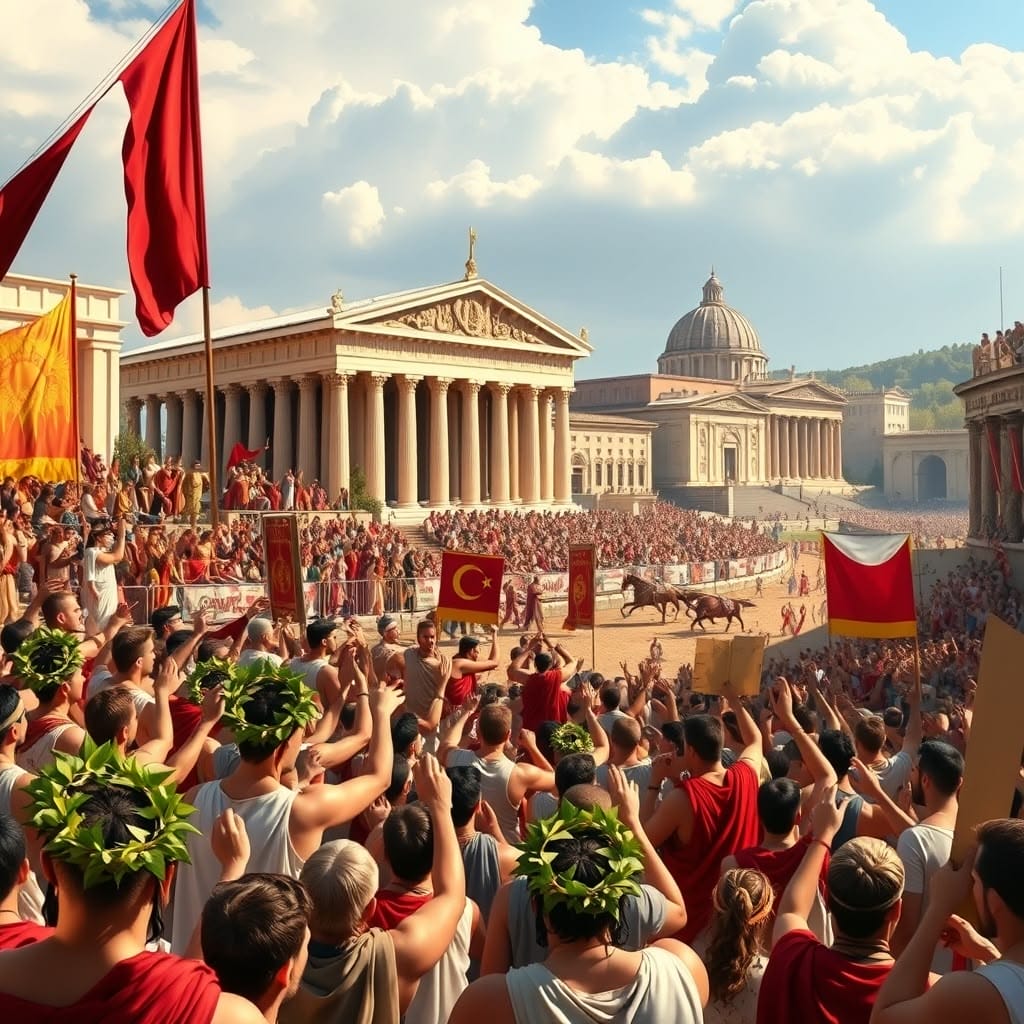
Athletic Competitions
The Ludi Romani festival was renowned for its diverse array of athletic competitions, which showcased the prowess and skill of Roman athletes. Among the most popular events were the chariot races, where teams of horses pulled chariots at high speeds around a track, providing thrilling spectacles for the audience. Additionally, foot races of various distances, including sprints and endurance runs, highlighted the speed and stamina of the participants. Combat sports such as wrestling and boxing were also central to the festival, demonstrating physical strength and technique. The pentathlon, a multi-event competition, and equestrian events further emphasized the importance of athleticism in Roman culture.
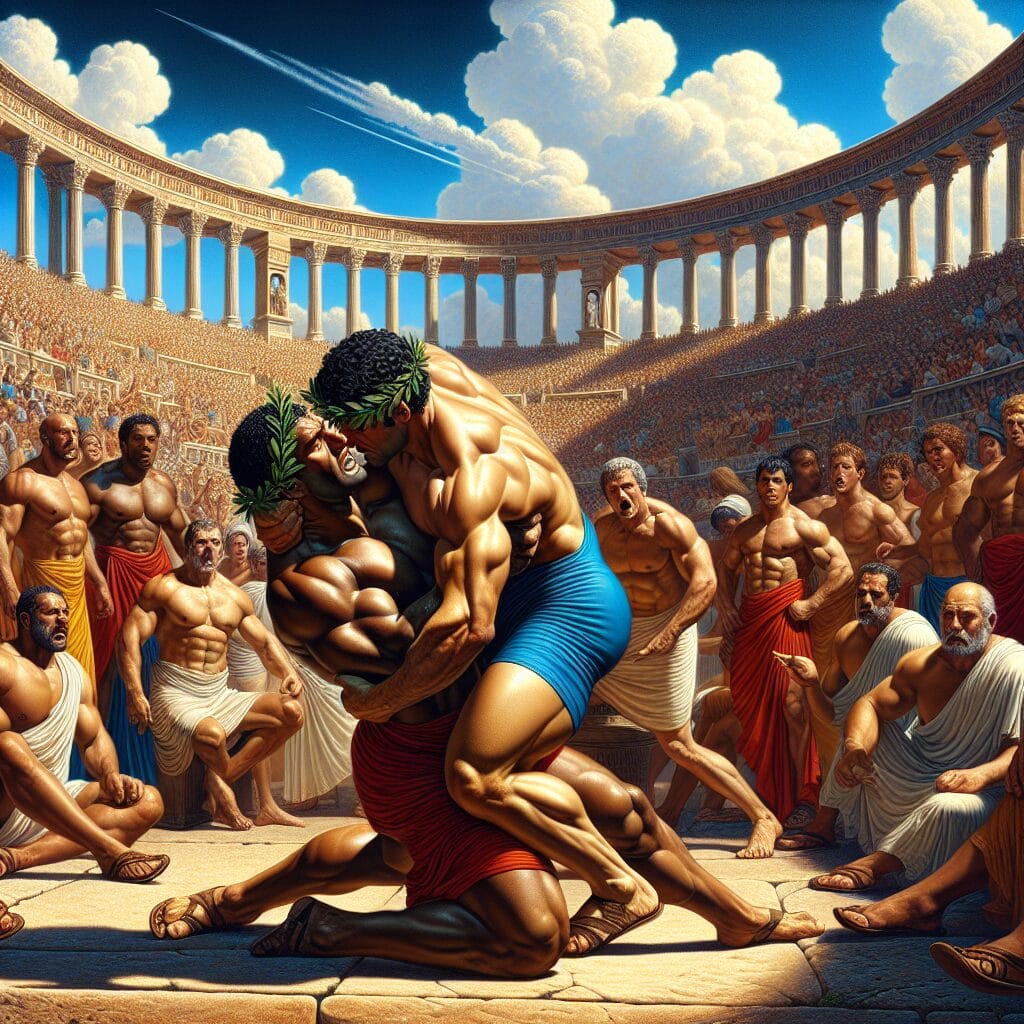
In Roman society, these athletic competitions played a crucial role in reinforcing social hierarchies and fostering community identity. By bringing together individuals from different social classes, the events promoted social cohesion and shared cultural values. Politicians and elites often sponsored these games, using them as platforms to gain public favor and showcase their power and generosity.
Culturally, the Ludi Romani celebrated Roman ideals such as strength, endurance, and discipline. The festival served as a testament to the Roman ethos of competition and excellence, highlighting the superiority of Roman athletes and culture. These events were not only a form of entertainment but also an expression of civic pride and religious devotion, reflecting the interconnectedness of athletic prowess and divine favor in Roman life.
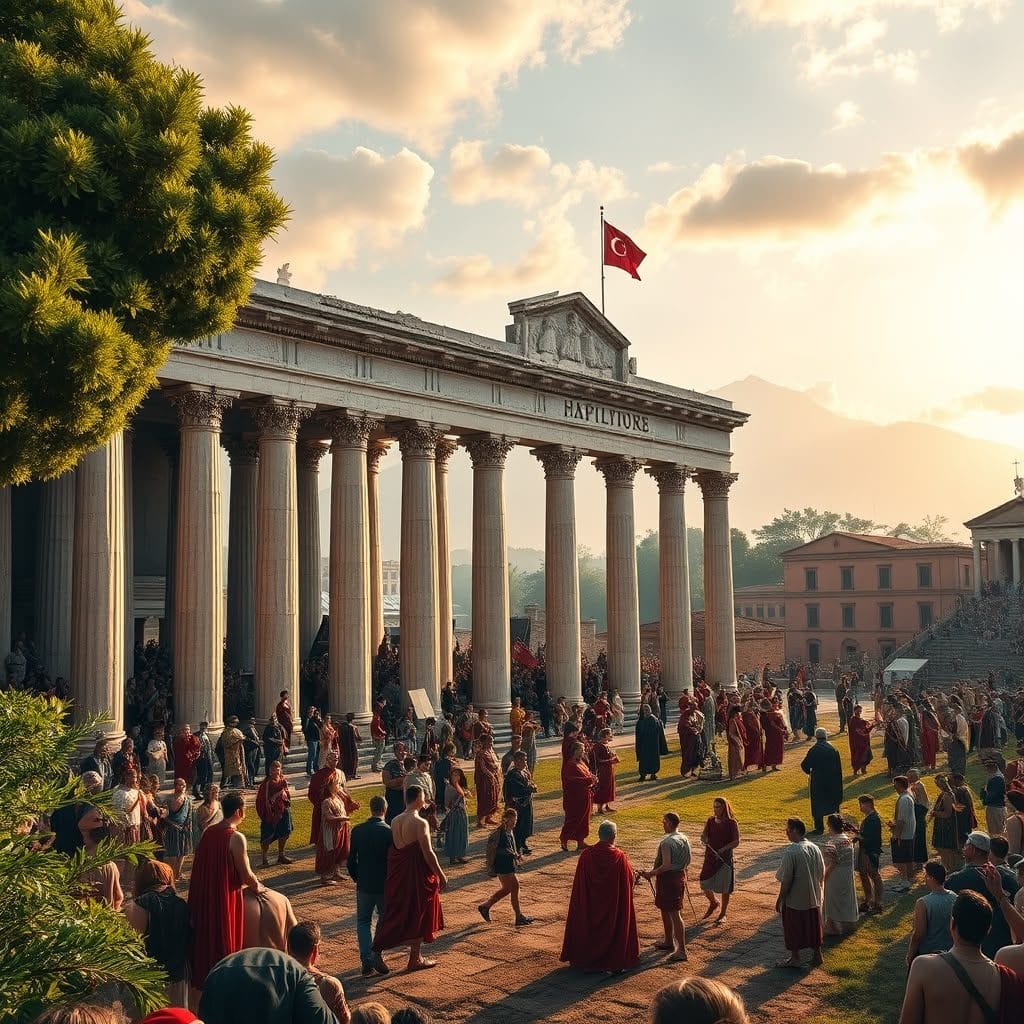
Chariot Races
The chariot races of ancient Rome stood as a thrilling spectacle, captivating audiences in grand arenas such as the Circus Maximus. These races featured teams of horses, typically two (biga) or four (quadriga), pulling lightweight chariots at breakneck speeds. Skilled charioteers, often emerging from the lower classes or slavery, maneuvered these precarious vehicles around a central barrier known as the spina, with races typically comprising seven laps.
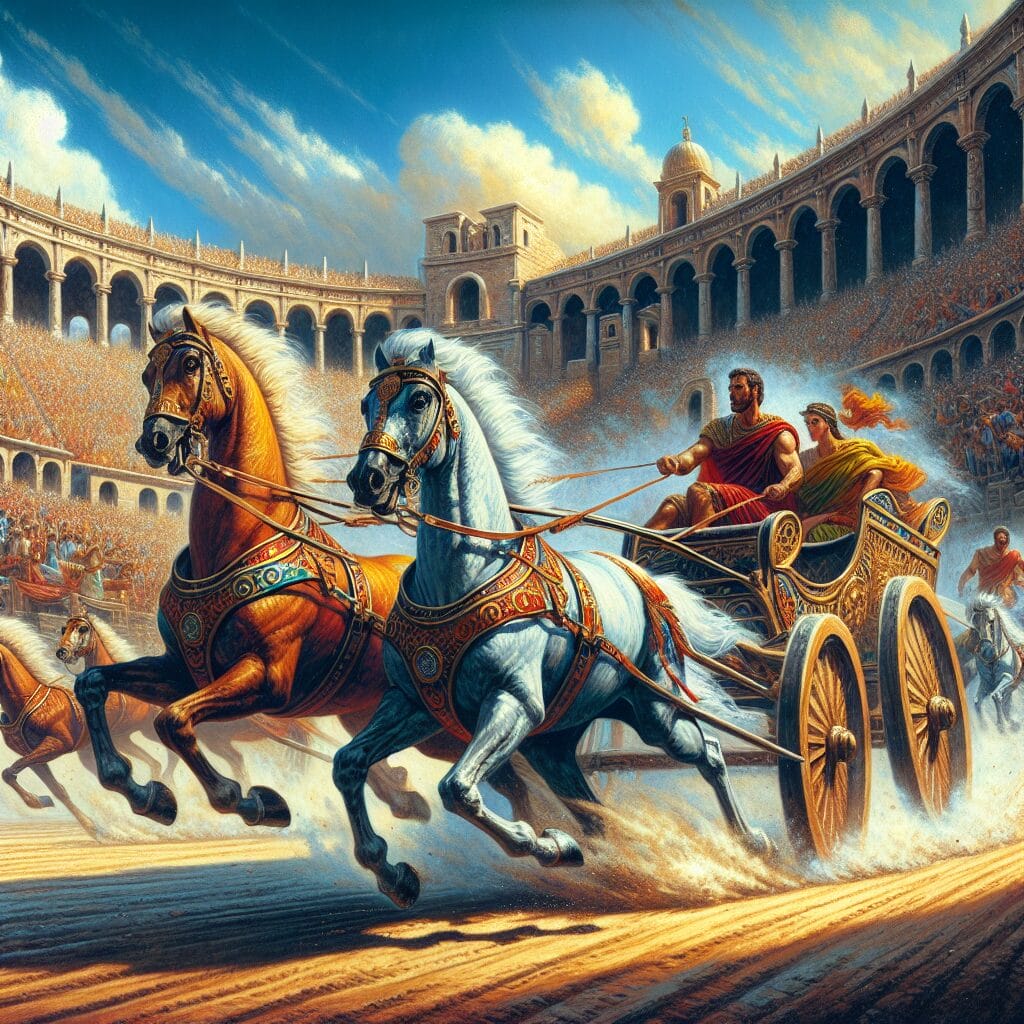
The popularity of these races was immense, drawing vast crowds who cheered fervently for their favorite factions, identified by distinct colors like red, blue, green, and white. This fervor was not merely for entertainment; it reflected social status, as wealthy patrons sponsored teams to gain prestige. The intense rivalries between factions fueled public excitement, making chariot racing a staple of Roman leisure.
Beyond entertainment, chariot racing had a profound impact on Roman culture and society. It served as a unifying event that transcended social classes, offering a shared experience for the elite and common citizens alike. Additionally, the races influenced political dynamics, as emperors and politicians used them to curry public favor and divert attention from political issues. Economically, the industry stimulated activity through betting and employment, while culturally, it inspired art and literature, leaving a lasting legacy on Roman identity.
Gladiatorial Contests
The gladiatorial contests of ancient Rome were highly structured events, held in vast arenas such as the Colosseum. These spectacles featured gladiators, often slaves or prisoners of war, who engaged in fierce battles against each other or wild animals. The contests were carefully orchestrated public spectacles, drawing large crowds eager to witness the display of martial prowess and courage.
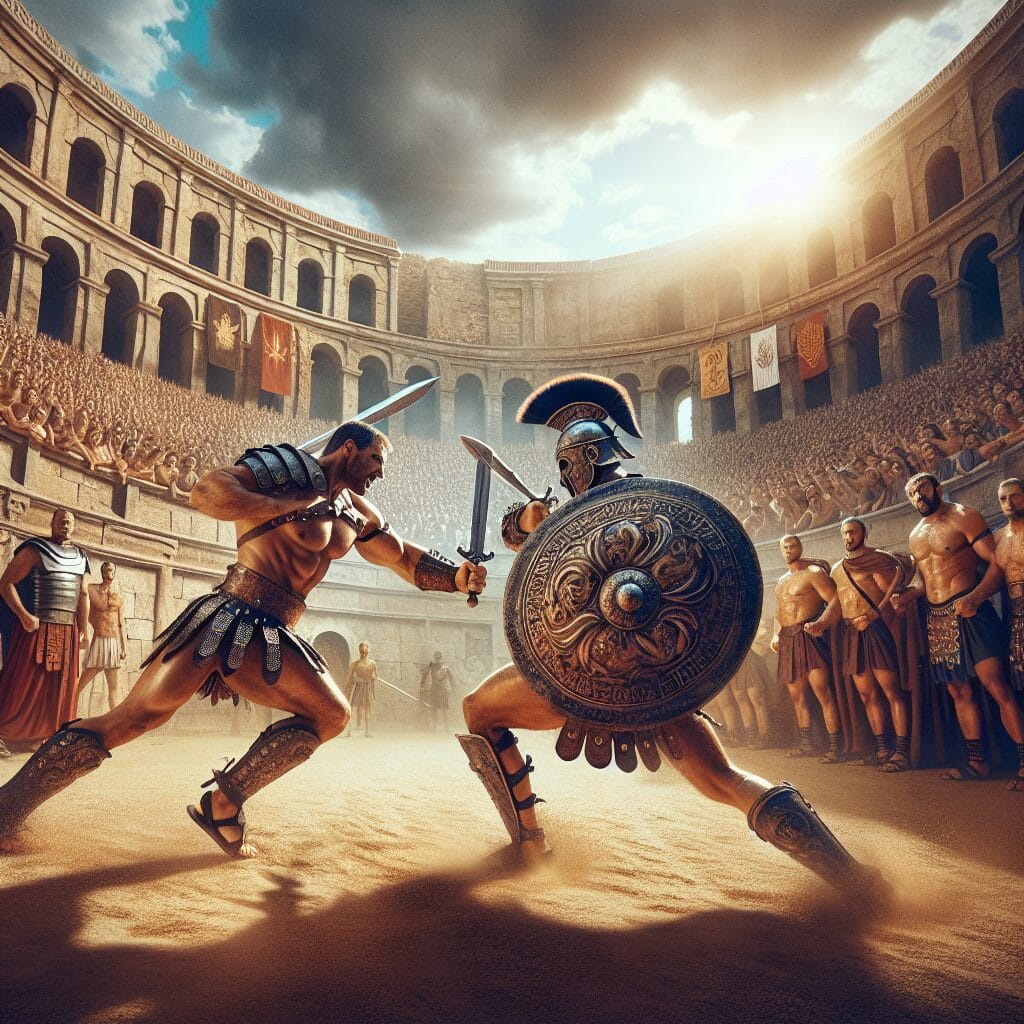
Symbolically, these games transcended mere entertainment. Gladiators, through their willingness to confront death, embodied the Roman ideals of bravery and valor. Their battles served as a powerful testament to the Roman virtues of strength, honor, and the warrior spirit. The bravery exhibited by gladiators was celebrated, often elevating them to the status of heroes in the eyes of the public.
Public perception of gladiators was complex, with these figures viewed both as entertainers and as symbols of societal values. While some admired their skill and courage, others debated the morality of such violent spectacles. Nevertheless, the cultural impact of gladiatorial games was profound, influencing literature, art, and philosophy, and serving as a tool for political leaders to display power and gain public favor.
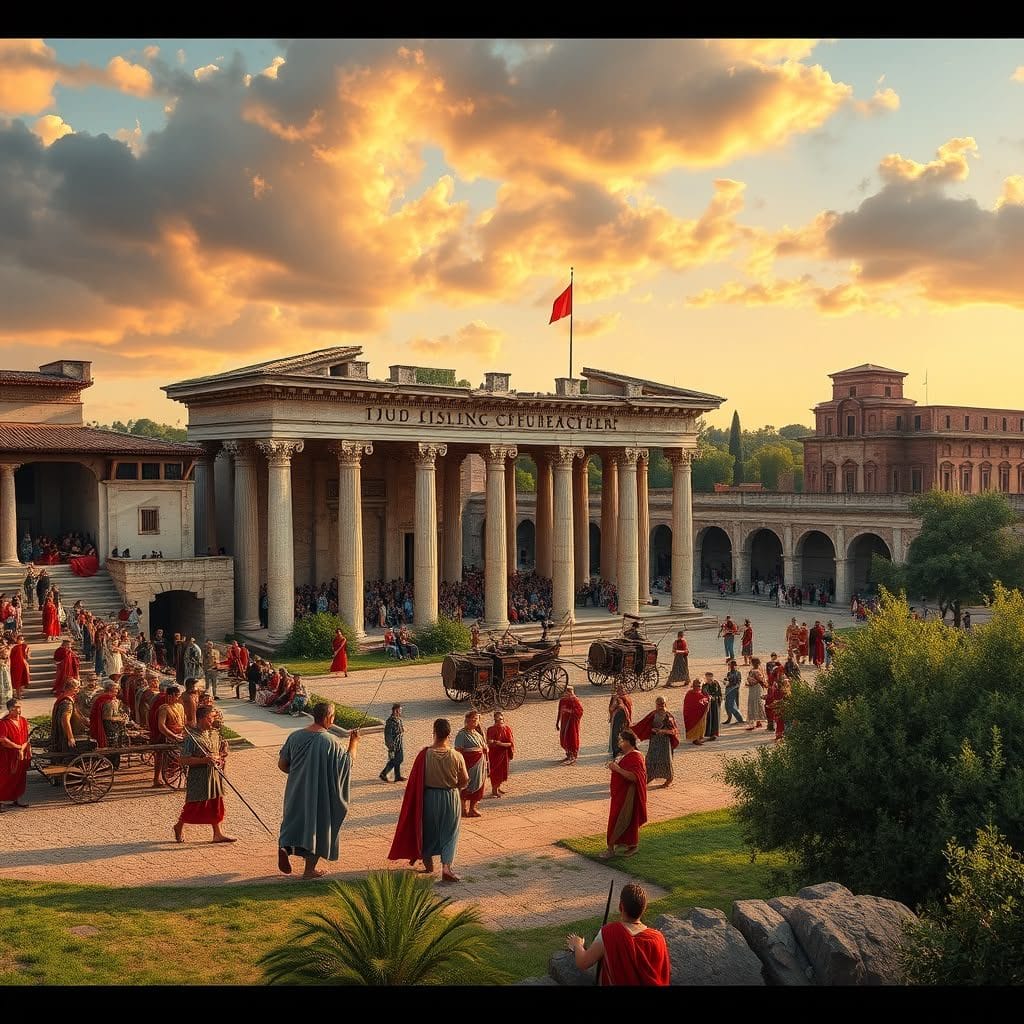
Theatrical Performances
The theatrical performances featured in the Ludi Romani were a cornerstone of the festival, providing both entertainment and cultural enrichment. These performances included a variety of genres, from comedies and tragedies to mime and pantomime, reflecting the diverse tastes of Roman audiences. Such performances were often adaptations of Greek plays, highlighting the Romans’ appreciation for Hellenistic art and culture.
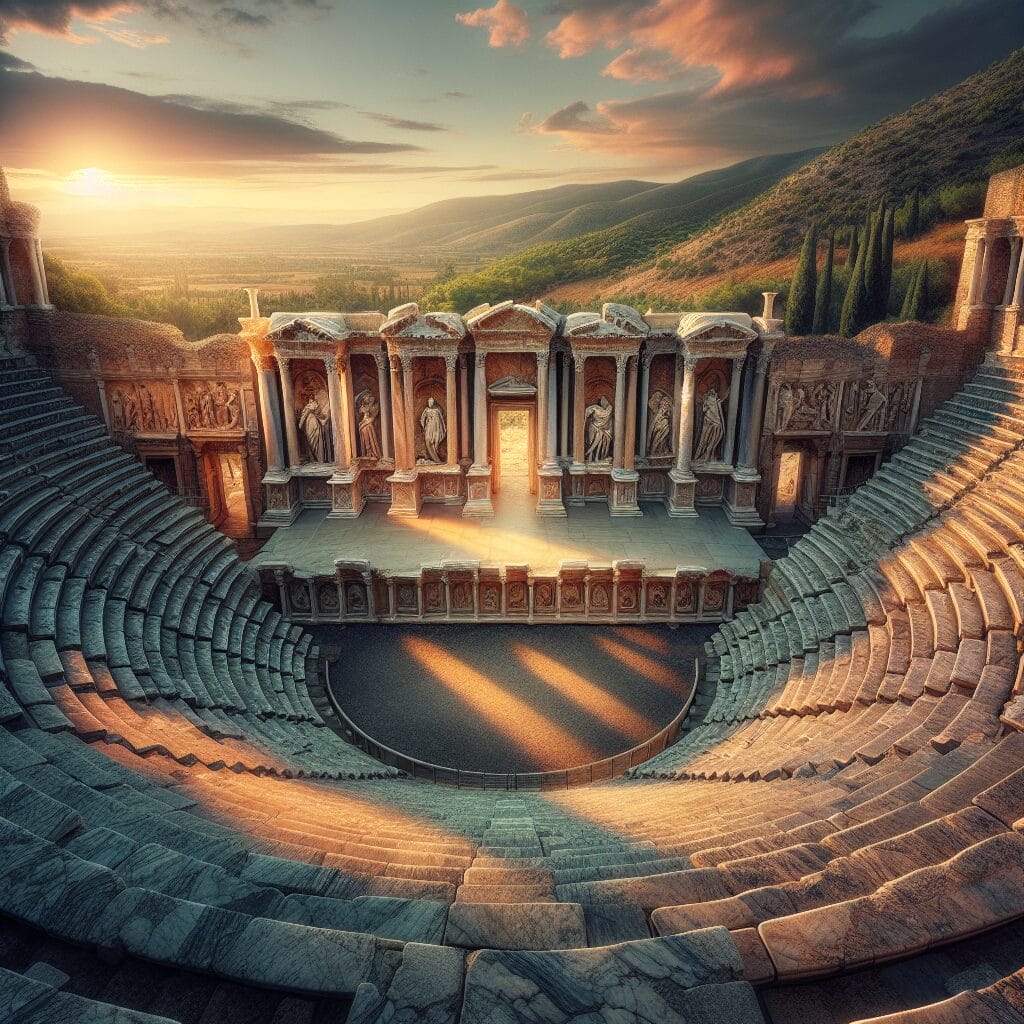
In the context of the Ludi Romani, theatrical performances played a crucial role in honoring Jupiter. They were integral to the festival’s celebrations, offering a medium through which religious themes and moral lessons could be conveyed to the public. This artistic expression was not only a form of homage to the gods but also a way to engage the audience in reflections on human nature and society.
The cultural and artistic value of these performances cannot be overstated. They served as a platform for creative expression and intellectual discourse, enriching Roman cultural life. Theatrical performances showcased the sophistication of Roman art, contributing to the cultural legacy of the Roman Empire and influencing subsequent generations of playwrights and performers across the Mediterranean world.
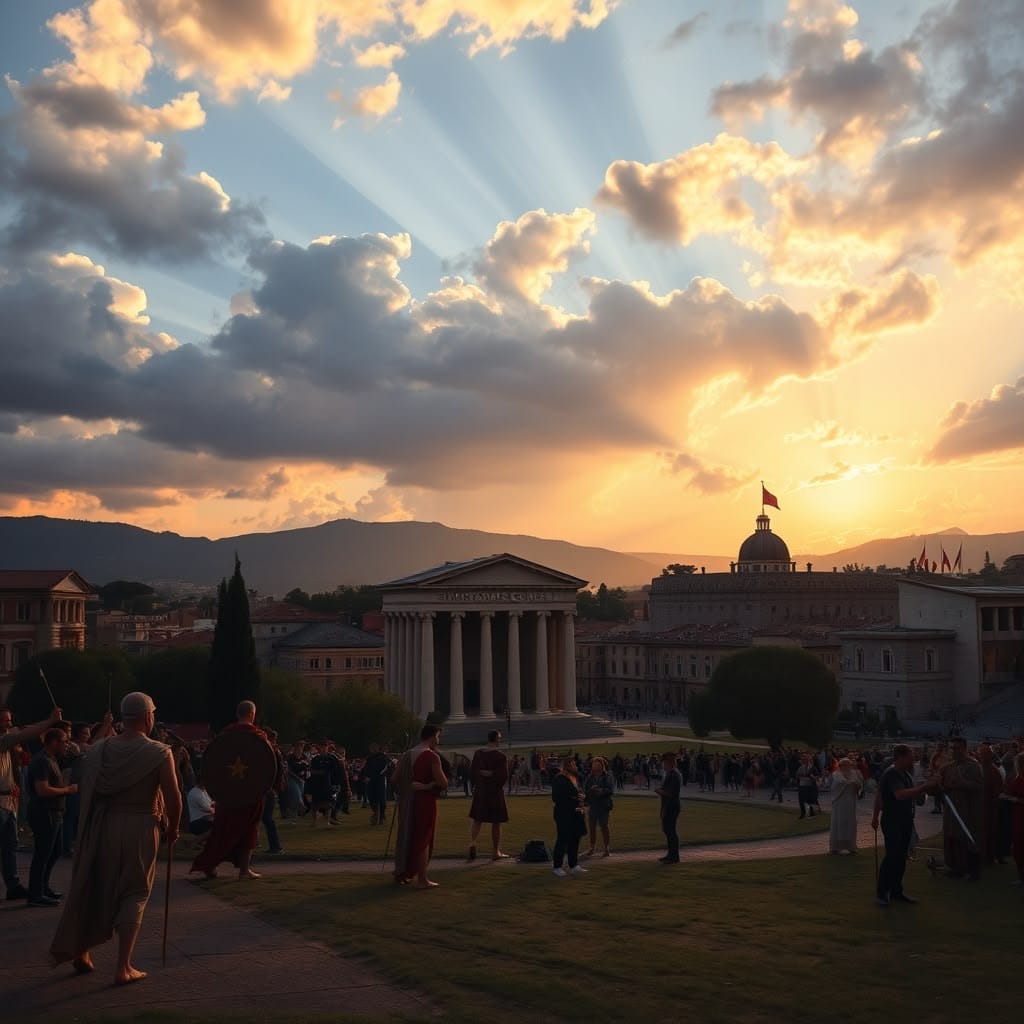
Religious Significance
The Ludi Romani festival held profound significance within the framework of Roman religion. As a key event in the Roman calendar, it was deeply intertwined with religious observances and rituals. The festival’s primary purpose was to honor Jupiter, the king of the Roman gods, who was revered as the deity of sky and thunder. His favor was considered essential for the prosperity and protection of Rome.
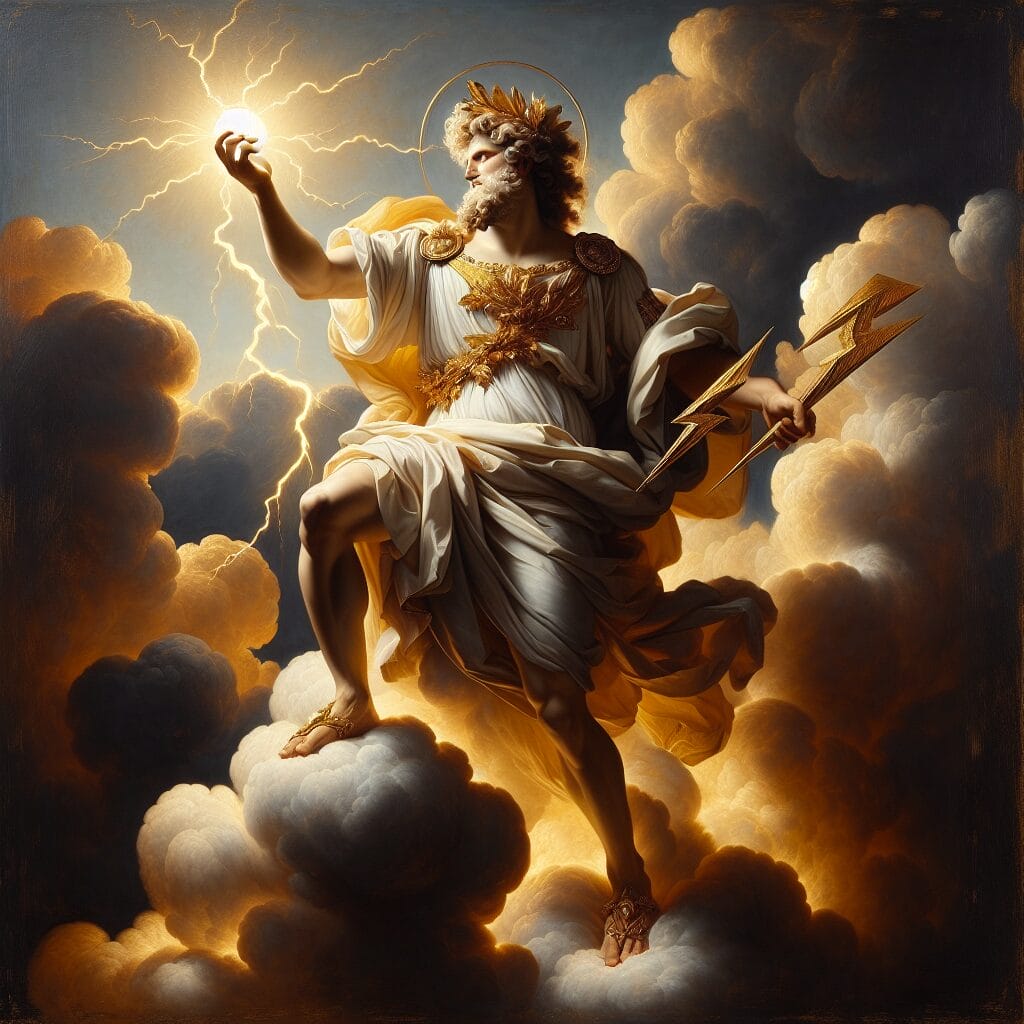
Jupiter’s role in the festival underscored the divine approval sought through the games. These celebrations included not only athletic competitions but also elaborate sacrifices and ceremonies dedicated to him. Jupiter was believed to grant victory and prosperity, making his veneration during the Ludi Romani crucial for both the city and its leaders.
Religious practices involved in the festival were meticulously organized. These included processions, offerings, and prayers, which were integral in seeking divine blessings. Such rituals reinforced the connection between the state and the divine, highlighting the belief that Rome’s success was inextricably linked to the favor of its gods. The Ludi Romani thus served as a vital expression of Roman piety and religious devotion.
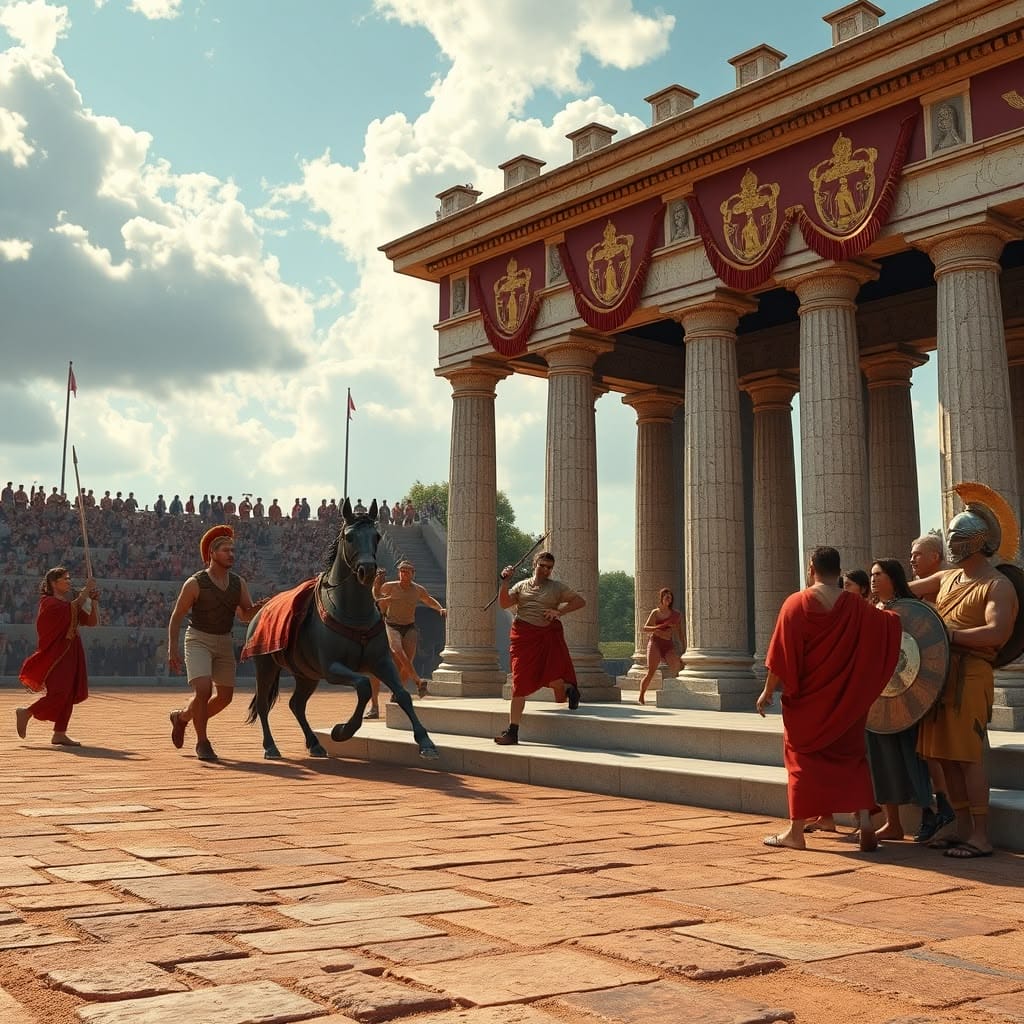
Political Implications
The Ludi Romani served as a strategic platform for Roman leaders to exert political influence and consolidate power. By orchestrating grand spectacles, leaders showcased their wealth and authority, enhancing their public image. Such demonstrations of power were vital in an era where public perception could significantly impact political stability.
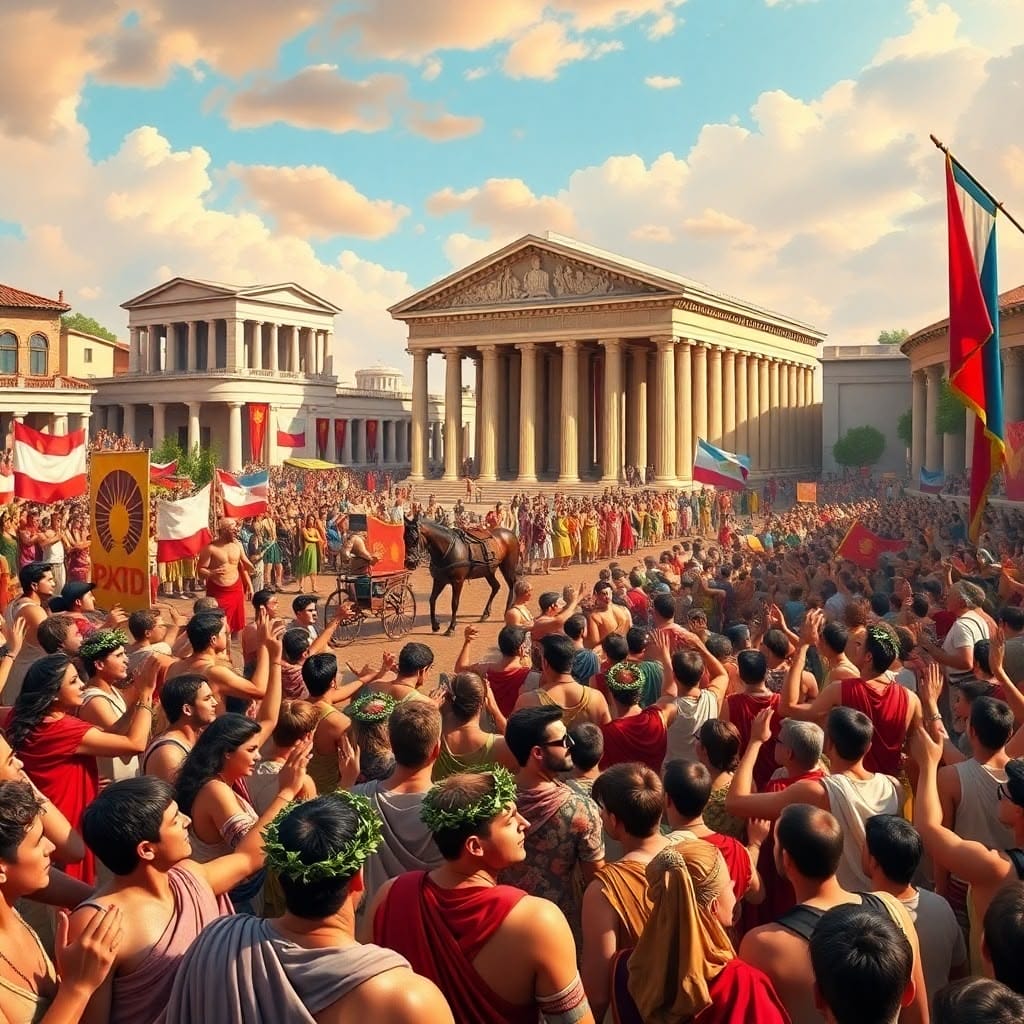
Moreover, the games provided an arena for public spectacle, allowing leaders to emphasize their status and control over society. Events such as gladiatorial contests were not only entertainment but also a display of the ruling class’s dominance. Political figures could further solidify their influence by aligning the games with their political agendas, using them as a medium for political messaging and reinforcing their legitimacy.
The underlying motivations behind these events were multifaceted. Leaders harnessed the games to foster social cohesion and distract the populace from political unrest. Additionally, these festivals cultivated a sense of unity and shared identity among the citizens, reinforcing loyalty to the state. Through the religious and economic incentives intertwined with the games, Roman leaders effectively navigated the complex landscape of political life in ancient Rome.
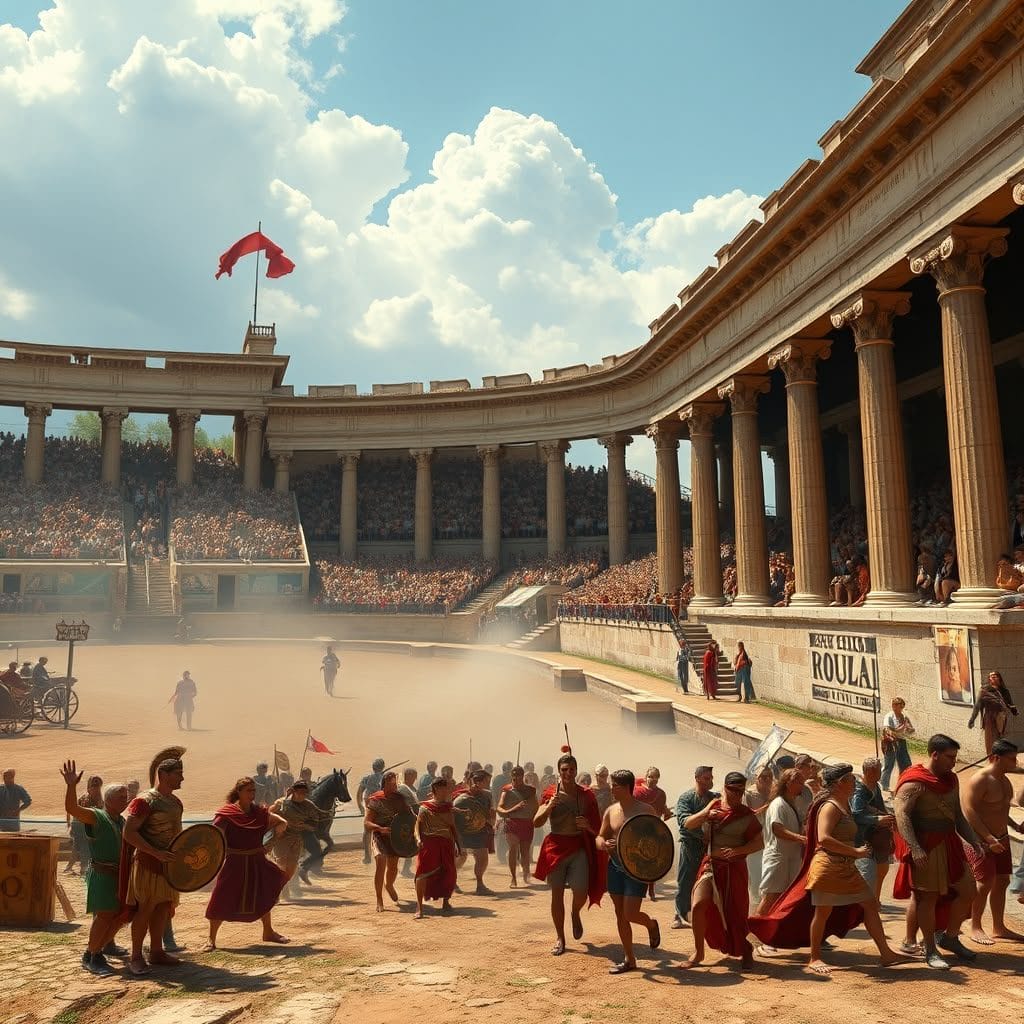
Reflection of Roman Values
The Ludi Romani festival stood as a testament to the core values of Roman society, prominently featuring the theme of competition. Romans held competition in high esteem, viewing it as a means of both personal and societal advancement. The various athletic events and spectacles within the Ludi Romani provided an ideal platform for individuals to showcase their prowess and achieve glory, embodying the competitive spirit that was deeply ingrained in Roman culture.
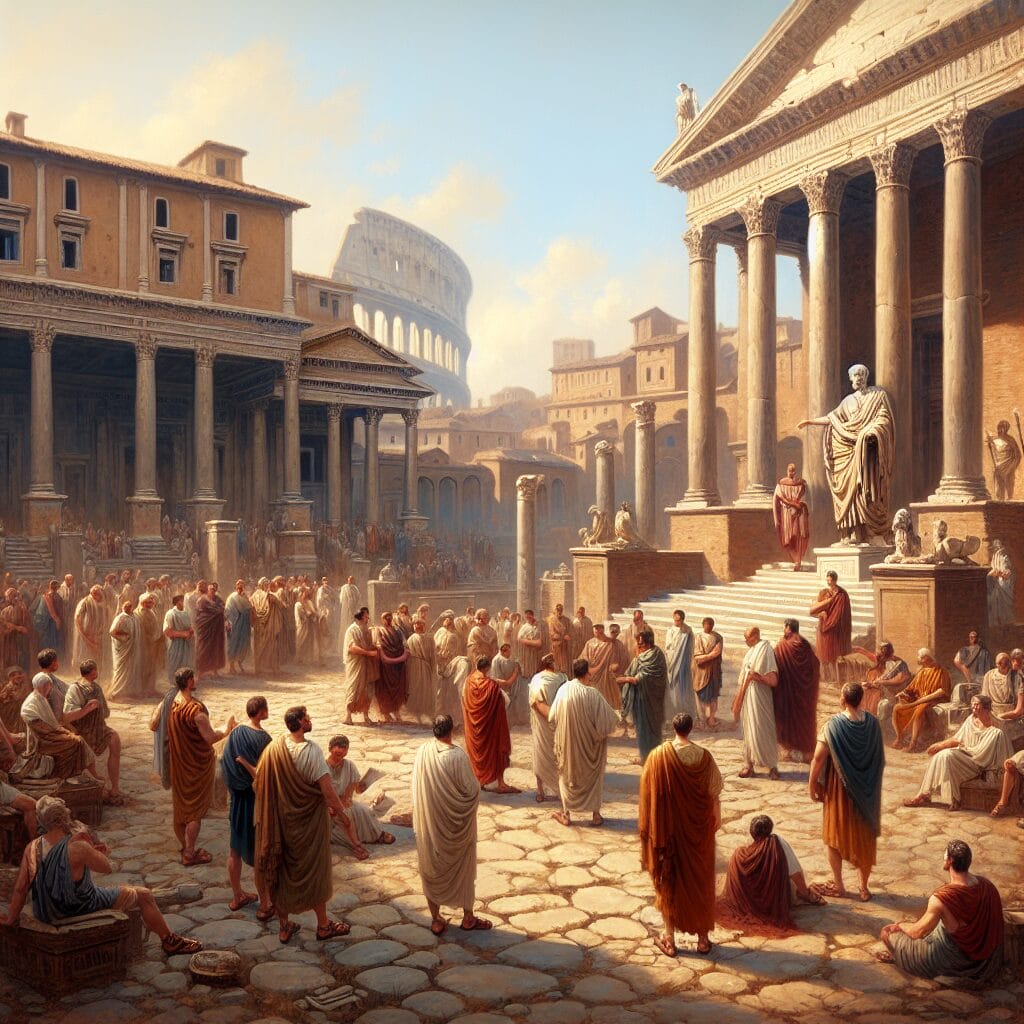
Bravery and civic pride were equally celebrated during the Ludi Romani. Gladiatorial contests, in particular, were arenas where the virtues of courage and valor were displayed. The participants, often perceived as embodiments of strength and bravery, captured the admiration of the public. These games reinforced a sense of civic pride, connecting the populace with their leaders and fostering a shared identity and unity among Roman citizens.
Moreover, the Ludi Romani mirrored the societal norms and expectations of the time. The games were not merely entertainment but a reflection of the hierarchical and structured nature of Roman society. They underscored the importance of discipline, strength, and loyalty, serving as a microcosm of the societal dynamics that governed Roman life.
Societal Impact
The Ludi Romani significantly influenced Roman daily life, serving as a focal point for public entertainment and leisure. These games provided a temporary escape from the mundane routines of everyday life, offering a variety of spectacles that captivated the populace. By drawing large crowds, the festival created a bustling environment that stimulated local economies through trade and tourism.
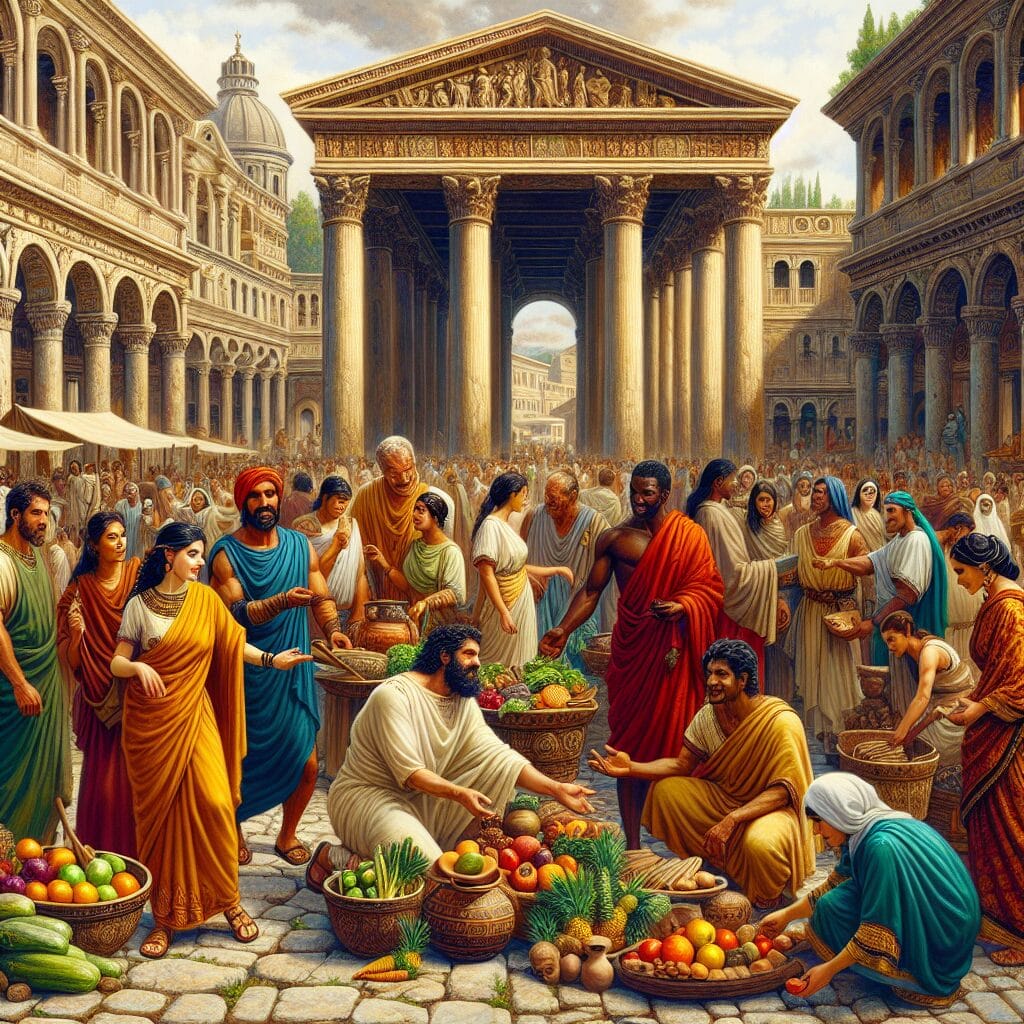
Furthermore, the games played a pivotal role in maintaining social cohesion among Roman citizens. By bringing together diverse segments of society, the festival fostered a sense of unity and shared identity. It reinforced civic pride and loyalty to the state, as citizens felt a collective connection to the grandeur of the games and the leaders who organized them.
In the long term, the Ludi Romani left an indelible mark on Roman culture. It perpetuated the values of competition, bravery, and communal participation, which became defining characteristics of Roman society. The cultural legacy of the games influenced subsequent generations, shaping societal norms and expectations that continued to resonate throughout the history of Rome.

